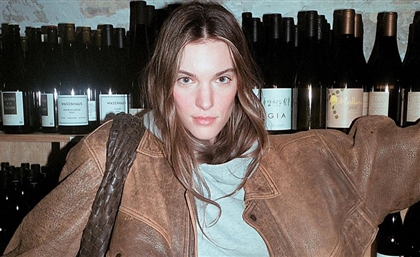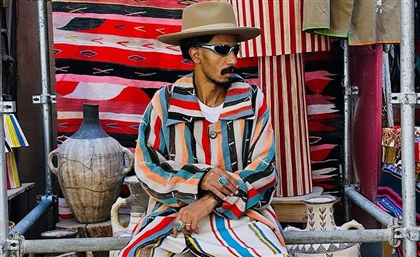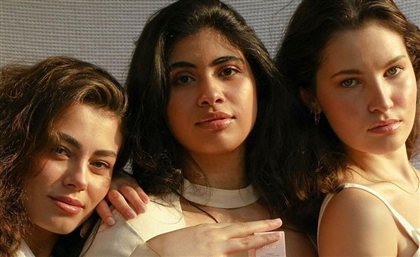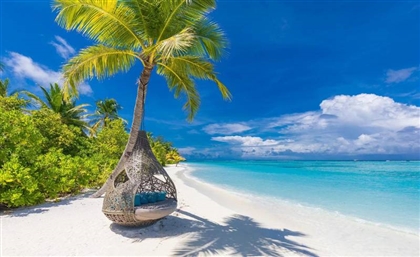Yehia Khalil: The Jazz, The Man
Ahead of his performance at Galleria40's Winter Festival, we sat down to chat with Jazz legend Yehia Khalil to find out about his introduction to the genre, performing alongside musical greats, and his opinion of the scene today...
At first glance, Yehia Khalil seems like someone who would - rightfully - have you fired for showing up 20 minutes late for your appointment all disheveled and not wearing deodorant. Soon you realise you have known him your whole life - you have seen bits and pieces of him scattered across the country he has loved so much, in the alleys of Khan El Khalili and the markets of Aswan. He’s your earliest memory, your first falafel sandwich and burst of red-blooded Egyptian patriotism in a playground full of white kids. Make no mistake, Yehia Khalil is a citizen of the world. A true cosmopolitan, he has been to every corner of the globe, bringing home a little piece of the world every time.
Yehia Khalil has come a long way since his pot-drumming days; he is now a Jazz legend in his own right. He formed the Cairo Jazz Quartet at the tender age of 13 in the early sixties, bringing the refreshing sultry breezy tunes of Jazz to Nasser’s Egypt. The band found great success in Egypt but that wasn’t enough for the young prodigy, so he packed his bags and left for the United States where he studied under legendary American percussionist, Roy Knapp – the man who mentored Gene Krupa. His adventures in Yankeeland saw him play with Rock, Soul, and Country bands like Rasputin Stach, Richard Berry, and Friend & Lover with which he toured the country for two years. The Jazz Man had a successful run in the US until his journey was cut short by a family tragedy, but that didn’t stop him from embarking on another adventure in his native Cairo, his mission being to “introduce all styles of Jazz” into Egypt’s once Jazzless musical landscape.
Like Jazz, Yehia Khalil is full of hope, passion, fervour, and pure unadulterated love for life, sentiments that don’t seem to have abated in time. He is still very much in awe of life after all those fruitful and rewarding years. I came to that conclusion two cappuccinos into my conversation with him. Ahead of his performance at Galleria40's Winter Festival, I got to pick his brain...
Why Jazz?
As a passionate lover of Jazz, I decided that this is what I want to do. I knew I’d meet a lot of obstacles, but I told myself that all beautiful things come at a price and if you have a dream, you have to work for it - you have to fight for it, you know? I had been reading about all the great Jazz giants that I loved as a child and how much they suffered and how life was hard for them, so I would think to myself: if you want to be like one of those people then you have to go through the same thing. I decided to fight for my dream and what I want to be.
My dream was to organise and form a Jazz group to play these tunes that I was listening to every day and going crazy about. So, I formed the first Jazz band. The first time we held a Jazz concert, we had a blast - such a great time. We used to have concerts at the American University in Cairo and at Cairo University, and cultural centres and such; we had a wonderful time.
Why did you go the United States?
I was very young and everybody was saying that I'm the best and that they've never seen anybody like me, but I knew I had so much to learn. I figured if I stayed here I would never learn anything; I had to go and be around those giants, those people that I’m crazy about. How did they become who they are? I wanted to know. I wanted to see.
Why Roy Knapp?
One time, I saw a movie about a drummer called Gene Krupa - he was the first star drummer in the history of Jazz, and he was like a matinee idol. When I saw that movie, I was very very impressed by him, so when I went to the States and someone told me that Gene Krupa was playing in Chicago somewhere, I went to see him. I then found out that he studied under a man called Roy Knapp, who had the best Percussion school in the state, called Roy Knapp School of Percussion and that this man was alive. I went to see him and I told him that I was from Egypt and that I wanted to be his student. He kept me going back and forth, because he was getting a bit old and he used to take on very few students himself, in his school - his students taught people, but I wanted to be with him. Finally he agreed to take me on as his student, and it doesn’t get any luckier than this. I was taught by the same man who taught Gene Krupa, Louie Bellson, Buddy Rich - those are the legends and there was never anyone as good as them and there will never be.
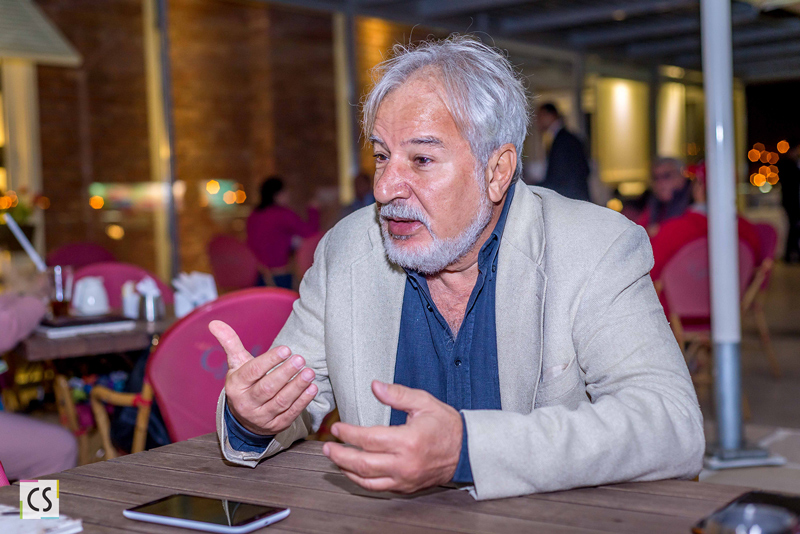
Tell me more about your time in the US.
I was lucky to get into a lot of successful bands. When I got to Chicago after leaving New York, where I studied, I was staying in a residential area, but I was told I should go to Old Town - that’s where artists and musicians and painters live; that’s where I’d meet people. I went there and I rented an apartment in a building that had a Blues club where all the greats played, like BB and Albert King. I lived on the first floor and there was a photographer living on the second. He came to me one day and said, “I have a client, he came yesterday, took some pictures, and he heard you practicing and asked to meet you. He’s a singer and so is his wife; they play Folk Rock.” He turned out to be Jim Post from Friend & Lover. His lyrics were a little incendiary; it was the hippie movement and the Vietnam war. Post told me, “I listened to you last night and I was very impressed. I wanted to ask you if you want to join us - we have an album to record with Atlantic, so we’re going to go to Georgia to record the album and we want you with us.” So we recorded the album and then in no time we had a hit song called Reach Out of the Darkness, so we played concerts around the country, every day a different town.
At the time, a concert would have five or six big names on the same night. One time we had a concert with Jimi Hendrix. Another time, we were performing at a concert in Detroit in 1968, when all of sudden we get up on stage and I see 50,000 people. I said, “Wow! What happened? How come there are so many people today?” They told me because we were playing as a warm-up act for Cream. So I witnessed the beginning of the whole psychedelic scene, in the middle of the whole thing.
You experienced a great deal of success in the US, why didn’t you settle there?
To tell you the truth, I experienced a tragedy in my family that I had to come back for but, actually, I was extremely extremely happy there. Let’s say you decided tomorrow to go and live in France, for example, okay? You were planning to stay for two years, but two months later you get a call telling you that your dad is very sick. What are you going to do? You’re going to get on the first plane and go back, and if he says 'stay next to me', you will. This is our upbringing; we have that in us and it will always be there. We have ties to our family because we are different than people who were born and lived and were raised in Western culture… I still have that in me, all the way.
How did you adjust to this big change?
When I first came, I played at the opening of the Opera House with Dizzy Gillespe, the Jazz giant. As a promoter of this kind of music, I was interested in introducing all different styles of this genre in Egypt, and in popularising this music and creating a fan base for it. That was a big dream for me. I spent a lot of years in the Opera. I would invite a lot of performers, saxophonists, singers, etc. from abroad, all of whom were big Jazz names, to participate in shows in Egypt along with Egyptians. I was interested in mixing them together to edify and elevate Egyptians. I did that for so many years and I was so happy that I managed to present the different styles of this music so people would know what Jazz is. In addition to the Opera House, I also played at different cultural centres. Then I did a program on national television called The World of Jazz, so all of that helped me to edify a large portion of society as to what this art form is about. I wanted to leave Egypt’s imprint on this international music genre, so I presented what was later known around the world as Oriental Jazz. I travelled all around the world to present this art form to people everywhere.
What would you say your most personal or meaningful piece is?
Everything I do I love very much. Once I’m done with something, I put it aside because I don’t want to beat myself up about anything. Once you get it together, let it go.
How do you feel about Egypt’s Jazz scene today? Which acts do you think are the most promising?
There’s no one. The crowds are ahead of the performers.
Finally, what can we expect from your much-anticipated performance at Galleria 40’s Winter Festival?
I always introduce something new. As a matter of fact, I get bored with myself a lot. So if I do something and I do it again the next day, it’ll be different - that’s all I can say. I don’t plan anything; when I go on stage and I look at the people, and everything comes to me.
You can find out more about the event here.
- Previous Article Dr.Sisilove or How (Not) To Diffuse A Bomb
- Next Article Zigzag and Space Sharm Hosting Third Son Next Thursday
Trending This Week
-
Apr 13, 2024




